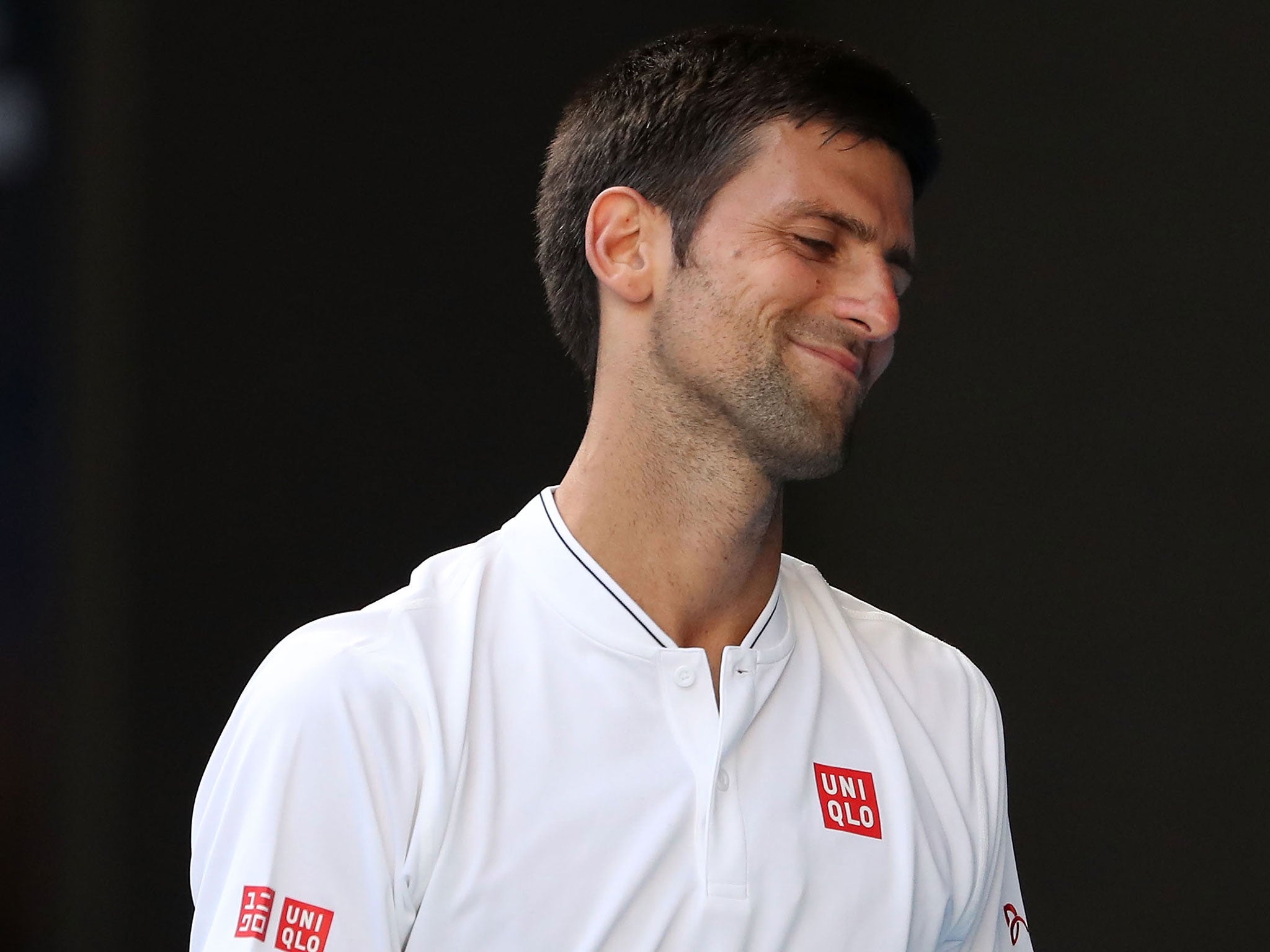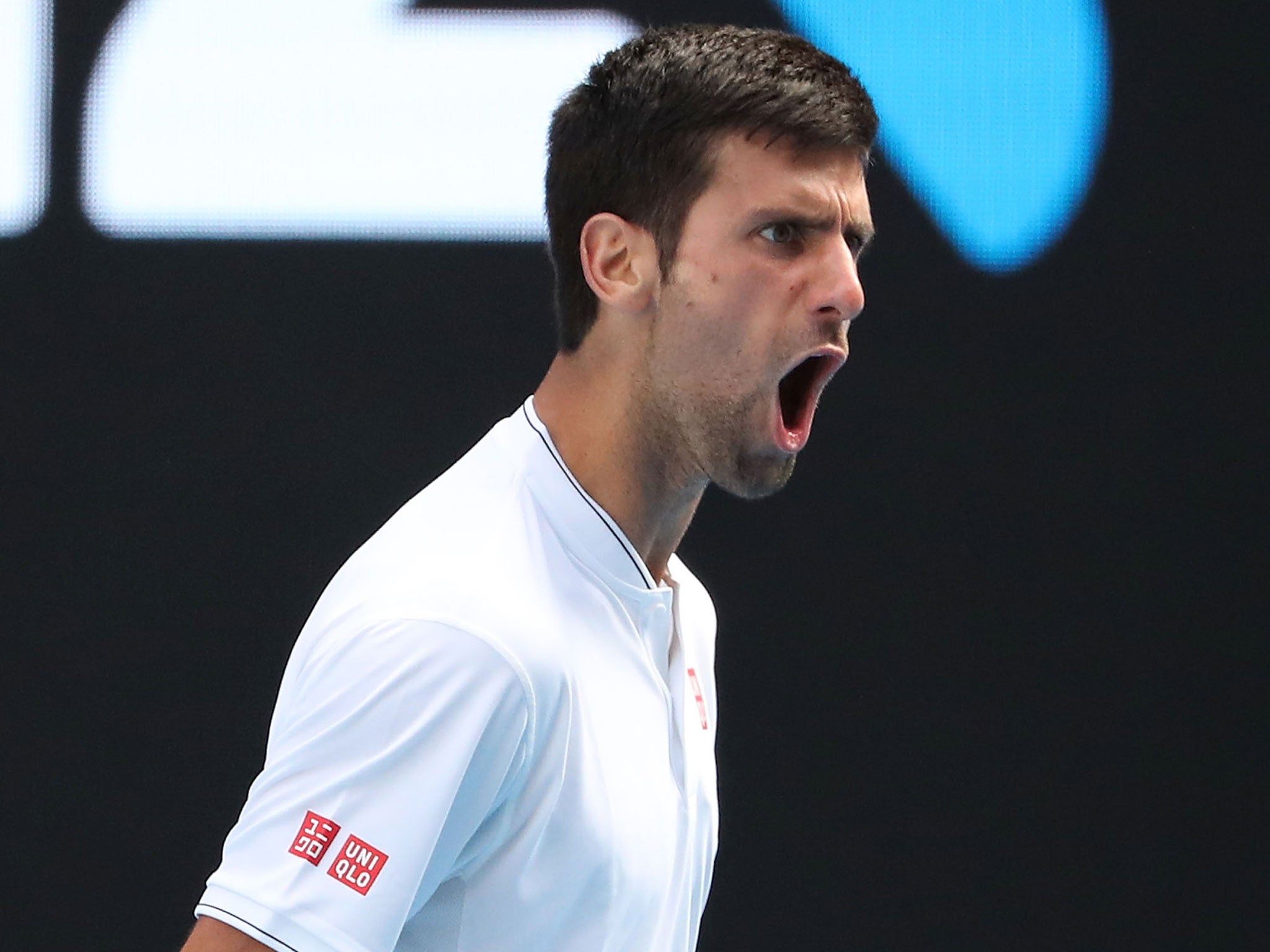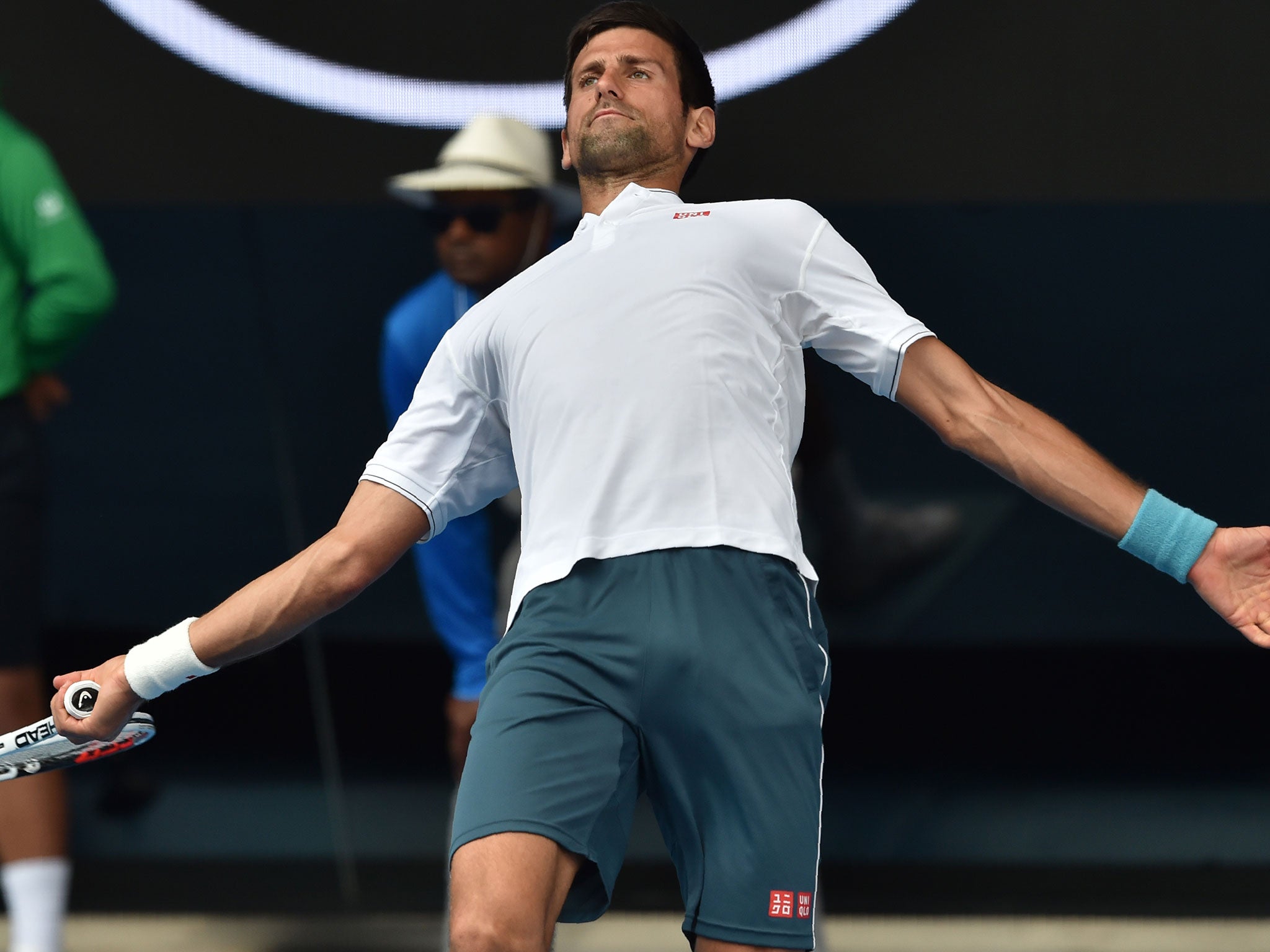Novak Djokovic's astonishing free-fall displays signs he's fallen out of love with tennis as his problems run deep
Since winning the French Open last year, Djokovic has looked a shadow of his former self and his early exit in Melbourne ends any hope of regaining the world No 1 before the clay court season

Your support helps us to tell the story
From reproductive rights to climate change to Big Tech, The Independent is on the ground when the story is developing. Whether it's investigating the financials of Elon Musk's pro-Trump PAC or producing our latest documentary, 'The A Word', which shines a light on the American women fighting for reproductive rights, we know how important it is to parse out the facts from the messaging.
At such a critical moment in US history, we need reporters on the ground. Your donation allows us to keep sending journalists to speak to both sides of the story.
The Independent is trusted by Americans across the entire political spectrum. And unlike many other quality news outlets, we choose not to lock Americans out of our reporting and analysis with paywalls. We believe quality journalism should be available to everyone, paid for by those who can afford it.
Your support makes all the difference.Seven months ago Novak Djokovic’s domination of men’s tennis could hardly have been more complete. By winning the French Open, which had eluded him for so long, the 29-year-old Serb became the first man since Rod Laver to hold all four Grand Slam titles at the same time and held a huge lead of 8,035 points over Andy Murray at the top of the world rankings.
What has happened subsequently has been little short of astonishing, especially given that the 12-times Grand Slam champion has not appeared to suffer any serious injuries other than some wrist and arm problems last summer. A second-round exit here at the Australian Open at the hands of Denis Istomin, the world No 117, was just the latest in a series of shocking defeats.
Djokovic lost to Sam Querrey in the third round at Wimbledon, to Juan Martin del Potro in the first round of the Olympics, to Roberto Bautista Agut and Marin Cilic in successive Masters Series tournaments in the autumn and to Murray in the final of the Barclays ATP World Tour Finals in London. The latter defeat confirmed that Murray would replace him as the year-end world No 1. Within days of the campaign ending Djokovic revealed that he had parted company with his head coach, Boris Becker.
If a victory over Murray in the Qatar Open final in the first week of this year suggested that Djokovic had recharged his batteries during the off season, what we saw here suggested that his problems are far from over. While Istomin played the match of his life, Djokovic looked subdued and lacking the passion that has driven him forward to so many triumphs in the past.
The Serb has always been one of the game’s great defenders, but his counter-attacking has been the key to his domination over the last six years. Between the 2011 Australian Open and the 2016 French Open he won 11 out of 22 Grand Slam tournaments and finished runner-up in six of the others.
Against Istomin Djokovic was too passive for much of the match and there were few signs of the fire that burned in his eyes throughout his time at the top. Becker, who is working here for Eurosport, was shocked at what he saw. “I’m still Team Djokovic,” he said. “I thought Novak was playing much too defensively and never really took the initiative and never really fought for it.
“This is a new situation for him. The Australian Open was always the foundation of the year. You leave Australia with the title in the bag and the 2,000 points and the year plays much easier. And now it’s a new situation and I think the team has to stick together and sleep on it, because nothing is going to come out of it tonight. They need to find a cure for this current situation.”
So what has gone wrong? Djokovic, who has a wife and young son, admitted at the end of last year that he had had to deal with some personal issues during the summer, though he insisted that they had been resolved. He also said that he had lacked some motivation in the wake of his triumph at Roland Garros, which had been his major target for so long.

The problems, nevertheless, may go deeper than that. For years Djokovic has been utterly dedicated in his pursuit of success, from the hours that he puts into his training to the strict diet that he follows, and from his belief in meditation to his use of hyperbaric chambers in his constant exploration of sports science. Is he as dedicated to the cause as he used to be?
For years Djokovic would prepare for the Australian Open by competing in the Middle East and then flying direct to Melbourne to have a full week of preparation here for the Australian Open. This year he went home after the Qatar Open finished and did not arrive in Australia until last Wednesday, just five days before the tournament started.
At the end of last year Becker told Sky Sports News: “He has not spent as much time on the practice court as he should have in the last six months and he knows that. Success doesn’t come by pushing a button. You have to work your butt off because that is what your opponents are doing.”
If Djokovic has lost some of his all-consuming drive to stay at the top he would not be the first tennis player to do so. After winning five Wimbledons and six French Opens, Bjorn Borg retired at the age of 26, feeling burned out. Andre Agassi also fell out of love with tennis, though he returned and recaptured his form, retaking the world No 1 spot four years after losing it.
Djokovic has given no public indication that he is tired of tennis, but would anyone blame him if that was the case? He has dedicated his adult life to his sport and has reaped financial rewards that must have been beyond his imagination when he was growing up in war-torn Serbia. He has won $107,898,543 (about £87.5m) in prize money, not to mention all his earnings from endorsements and appearance fees. Might he now be thinking that it would be good to enjoy the fruits of all his labour?
The next few months might not be easy. Murray will have a big lead at the top of the world rankings once this tournament is over - whatever the Scot achieves here - and Djokovic has almost no chance of catching him until the clay-court season. As the defending champion at the upcoming Masters Series tournaments in Indian Wells and Miami he has to win again just to stand still in the rankings. Murray, in contrast, will have opportunities to increase his lead after his moderate form at those events last year.

A break from tennis could be beneficial for Djokovic, though that might be a dangerous option. Djokovic is fit and strong but he will be 30 in May and new players are coming through all the time.
A better solution might be to find someone to replace Becker, someone who can push him to the heights in the way that Ivan Lendl has helped Murray. Marian Vajda, Djokovic’s long-time coach, is still in his corner, but it might be time to seek more help from outside. Before he does that, however, Djokovic might have to decide whether tennis still means as much to him as it did in all the years when he ruled the roost.
Join our commenting forum
Join thought-provoking conversations, follow other Independent readers and see their replies
Comments